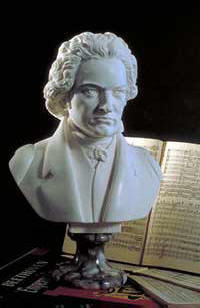

|
|
||
|
|
|
|
|
|
||
Reading and Writing
Text: “Whatsoever things are true, whatsoever things are honest, whatsoever things are just, whatsoever things are pure, whatsoever things are lovely, whatsoever things are of good report; if there be any virtue, and if there be any praise, think on these things.” –(Philippians 4:8)
“A man is known by the books he reads as well as by the company he keeps: for there is a companionship of books as well as of men; and we should always live in the best company.” –Samuel Smiles
What a mercy to the world is the art of writing! We can hold in our hands the labors of men who lived 2000 years ago, while the labors of others are hardly traceable. The accomplishments of conquerors like Alexander the Great lie forgotten amid dust and ashes, but they who have stopped long enough to write, they “being dead, yet speak.” God Himself chose to preserve His Word in the earth by committing it to writing.
The Importance of Books
There are no words sufficient to express the profound significance books have had in the lives of men and nations! Books have effected revolutions. Martin Luther shook the world with the publication of his Ninety-Five Theses; and at the age of 21, Calvin shook it again with the publication of his Institutes of the Christian Religion. Cervantes overturned chivalry in Spain by the publication of his satire Don Quixote.
Books are of greater significance than a battle or an invention. John Milton defined a book as “the precious life blood of a master spirit embalmed and treasured up on purpose to a life beyond life.”
Erasmus considered books necessities of life and clothes luxuries. He often delayed buying the latter until he had purchased the former. John Bunyan came to rejoice that when he married, though they were so poor as to have neither a dish nor a spoon between them, yet his wife had two books left her by her dying father – The Plain Man’s Pathway To Heaven, and The Practice Of Piety.
Good books with their instruction on work, integrity, and sobriety are a great blessing to the world. How elevating, ennobling and useful! Biographies of good men act as incentives and guides to others. Haydn believed that but for hearing Handel, he would never have composed “The Creation.” Correggio contemplating the works of Michelangelo declared, “I, too, am a painter!”
Martin Luther was early inspired by reading the works of John Huss. Both Charles Wesley and John Bunyan were converted through Luther’s Commentary on Galatians; and John Wesley was brought to Christ as a result of hearing the introduction read to Luther’s Commentary on Romans.
William Wilberforce read Philip Doddridge’s Rise and Progress and was converted. Richard Gibbes’ Bruised Reed and Smoking Flax led Richard Baxter to Christ.
William Carey was awakened to the mission field through the perusal of David Brainerd’s Diary and Captain Cook’s Voyages. Carey’s Letters in turn sparked Henry Martyn’s zeal for the mission field. It has also been the experience of this writer that when he is in spiritual ebb nothing can drive him as effectively to the Book of Books and to his knees than the savory life of a godly man.
Authors
While some books are to be used, some are to be refused, for books have a unique nature – they have a lasting affect for good or evil. They mold the mind and shape the will of future generations. Thus, from his grave, the writer of wicked things continues to teach lawlessness and to murder the souls of men. How exceedingly evil is an evil book! What a waterfall of corruption may it instigate!
It was said of Berengar, the so-called “Burns of France”, that his songs exhibited pictures of nastiness and vice that were enough to “pollute and destroy a nation;” and of Robert Burns himself, that it would be better all his writings should be destroyed and forgotten provided his indecent songs could be destroyed with them.
Authors are responsible for the good or evil they teach. “Be not many masters,” wrote the Apostle James, “knowing that we shall receive the greater condemnation.”
George Wilson said of Keats, “…Keats’ deathbed is the blackness of midnight unmitigated by one ray of light!” Thomas Paine cried, “Oh, that the Age Of Reason had never been written!” But how different is the testimony of Wordsworth: “One thing is a comfort in my old age:” he wrote, “that none of my works, written since the days of my early youth contains a line I would wish to blot out because of pandering to the baser passions of our nature. This is a comfort to me: I can do no mischief when I am gone.”
The Bishop of Manchester, England said of Charles Dickens, “I have read most of Mr. Dickens’ works, and so far as I can remember there is not one single page or one single sentence tainted with any impurity or anything that would suggest a vile or vicious thought.”
Sir Thomas Scott declared, “I am drawing near the close of my career. I am fast shuffling off the stage. I have been perhaps the most voluminous writer of the day, and it is a comfort to me to think that I have tried to unsettle to man’s faith, to corrupt no man’s principles, and that I have written nothing which on my deathbed I should wish blotted.” Authors die, but their works live on, and call to readers passing by either to good or evil.
Novels and gossip sheets are the literature of the degenerated in heart. To devour the garbage stacked on the shelves in our public libraries is worse than a waste of time –it is absolutely pernicious. Emerson exhorted, “Shun the spawn of the press and the gossip of the hour.”
Publishers
If a great responsibility lies upon the author, how much more lies upon the publisher! Printing has become prostituted by the speedy and universal circulation of poisonous literature. Frothy conceits and idolatrous pictures are everywhere. Such publishers are not interested in family or country: their “god is their own belly” –“they are a law unto themselves.”
Readers
How great a responsibility lies upon the reader in selecting what to use and what to refuse! But how much reading is undertaken only for momentary excitement, and leaves no lasting residue of intellectual, moral or spiritual enrichment! The present craze is toward frivolity and entertainment, and authors and publishers are bowing to meet the simple whims of the masses. Books, like people, may be popular but such are good for nothing. But when publishers become “dollar-ous”, times indeed are “dolorous.” What Michelangelo said of one artist is fitting of present-day writers and publishers: they would do better were they not so obviously greedy of gain!
Readers who accustom themselves to learn under the Nurse of Amusement will soon reject learning, for the least mischief of such knowledge is shallowness. It is not how much a man may know that is important, however, but rather the reason why he knows it. The purpose of education is not to make us “better off”, or to “get ahead:” the purpose of acquiring knowledge is to make us better and more useful; but knowledge without principle will make a bad man a worse man.
Dante influenced Boccaccio, Michelangelo, and Raphael. Milton read him and learned to bear with evil tongues. The Bible, the Prayerbook, Jeremy Taylor’s Holy Living and Holy Dying, and Caesar’s Commentaries were among the favorite books of the Duke of Wellington. Sir Joshua Reynolds was first moved to paint by reading the biography of a painter, and Haydn was ignited by reading the life of Reynolds.
Who can measure the courage and inspiration resulting from reading how Oliver Goldsmith, in the midst of wretchedness brought on by poverty, was offered a lucrative job of writing political pamphlets, and to read how he refused the offer. He preferred instead to use his pen to write Goody Two Shoes for the amusement of children to becoming the “hack pamphleteer of political prostitutes”, as he called them.
Read how Ziska willed his skin to be used as a drum to inspire the Bohemians in their fight for freedom; how Robert Bruce’s last wish was that his heart be carried to the “Holy Land,” and of the adventures of Sir James Douglas in carrying out that wish. Read how Charles V made way for Titian the painter and how when one day the brush dropped from his hand, the Emperor stooped and picked it up saying, “You deserve to be served by an Emperor.” Read how Francis de Medici never spoke to Michelangelo without first uncovering his head, and how Pope Julius III made him sit by his side while a dozen cardinals were standing.
Learn to carry a good book with you. In literature as in life, keep the best company; and the best books are the ones that encourage living in the fear of God. Such books are but sermons preached to the eye. Other books can open the understanding to God’s Word. Become familiar with authors; get acquainted with publishers, for some traffic in works that intend to unsettle the reader’s faith.
A man is known by the books he reads. “Tell me whom you admire, and I will tell you what your are,” said Sainte-Beuve.
